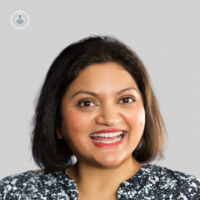Medico-legal consultation: a comprehensive guide
Written in association with:GP and medico-legal expert Dr Hana Patel explains everything you need to know regarding medico-legal consultations, including when they are necessary, how information is evaluated and challenges which can arise during such consultations.
What is the purpose of a medico-legal consultation, and when is it necessary?
A GP medico-legal expert works to provide patients with information and an expert opinion as a medical witness throughout a legal case.
The reports of GP experts hold considerable significance in courts and can exert substantial influence over the final decision rendered by a judge.
Medico-legal work includes
- written reports for court
- attendance at court (as a witness)
- attendance at conferences with counsel or other legal professions

Someone may wish to seek legal advice if they are unhappy with the care that they or a family member or loved one has received. They may also seek advice after involvement in an accident, due to immigration odue to family matters.
I specialise in criminal, immigration and civil cases to assist dedicated professionals to strive to achieve the best possible outcome for the situation, and to establish an environment with increased safety and security through collaboration with other professionals.
What information should be provided to a doctor during a medico-legal consultation?
If you have to attend a medico-legal appointment, you must bring an identification documentation and your GP can verify your identity to the court in their report.
The GP will ask what medication that you’re taking (if any). Some people may decide to bring their medication (or a list, including dosage) with them to their consultation and ask their GP for their complete medical records.
Additionally, if you have any photographs that are relevant to your claim (accident or injury photographs) it is a good idea to bring these, along with any the medical questions your solicitor would like the GP to answer.
How does a doctor evaluate and document injuries or medical conditions during a medico-legal consultation?
The doctor will need to examine the site of the pain/injury and will ask questions about any medication (and dosage) you are taking. They will need to photograph any injuries, scars or walking aids, which will be done in a discreet manner for your comfort. In some cases, a doctor may take a full-length photo for identification purposes, but will be held in a secure server. Some patients prefer to have someone to accompany them, however, this will require a written agreement from the solicitor.
What are the common challenges or complexities encountered during medico-legal consultations?
In order to aid solicitors, medico-legal experts are now being asked to provide further, in-depth knowledge. As a result of trying to uphold a standard of high-quality expertise, professionals are increasingly required to refine their practices and engage in closer and proactive collaboration with instructing parties. Simultaneously, they must safeguard their independence.
This has also resulted in improved clinical care, easier resolution of disputes and increased efficiency of the legal process.
What are the obligations and responsibilities of a doctor during a medico-legal consultation?
An expert GP witness takes the role of an advisor during such consultations. It is not the expert GP's role to give clinical advice, however, medicolegal advisers do have a major role in improving standards across the medical profession. GP expert witnesses are advocates for patient safety and risk management and are their unique position enables them to comprehend the potential pitfalls that may result in legal, regulatory, or disciplinary challenges.
I often face situations where inadequate continuity of care has contributed to an adverse outcome. It is essential for to have strong communication between patients and colleagues, in written form.
Unfortunately, I have seen first-hand the increase of complaints in recent years, which can be attributed to a number of factors, including patients being encouraged to file complaints, which has increased the number of high-profile cases in the medical field.
Doctors have a professional responsibility to promote and protect patient safety and act on potential risks to patients. As awareness of this responsibility grows, a portion of our workload now involves addressing complaints or participating in investigatory processes initiated by other healthcare professionals.
If you are require medico-legal assistance and would like to book a consultation with Dr Patel, do not hesitate to do so by visiting her Top Doctors profile today.


